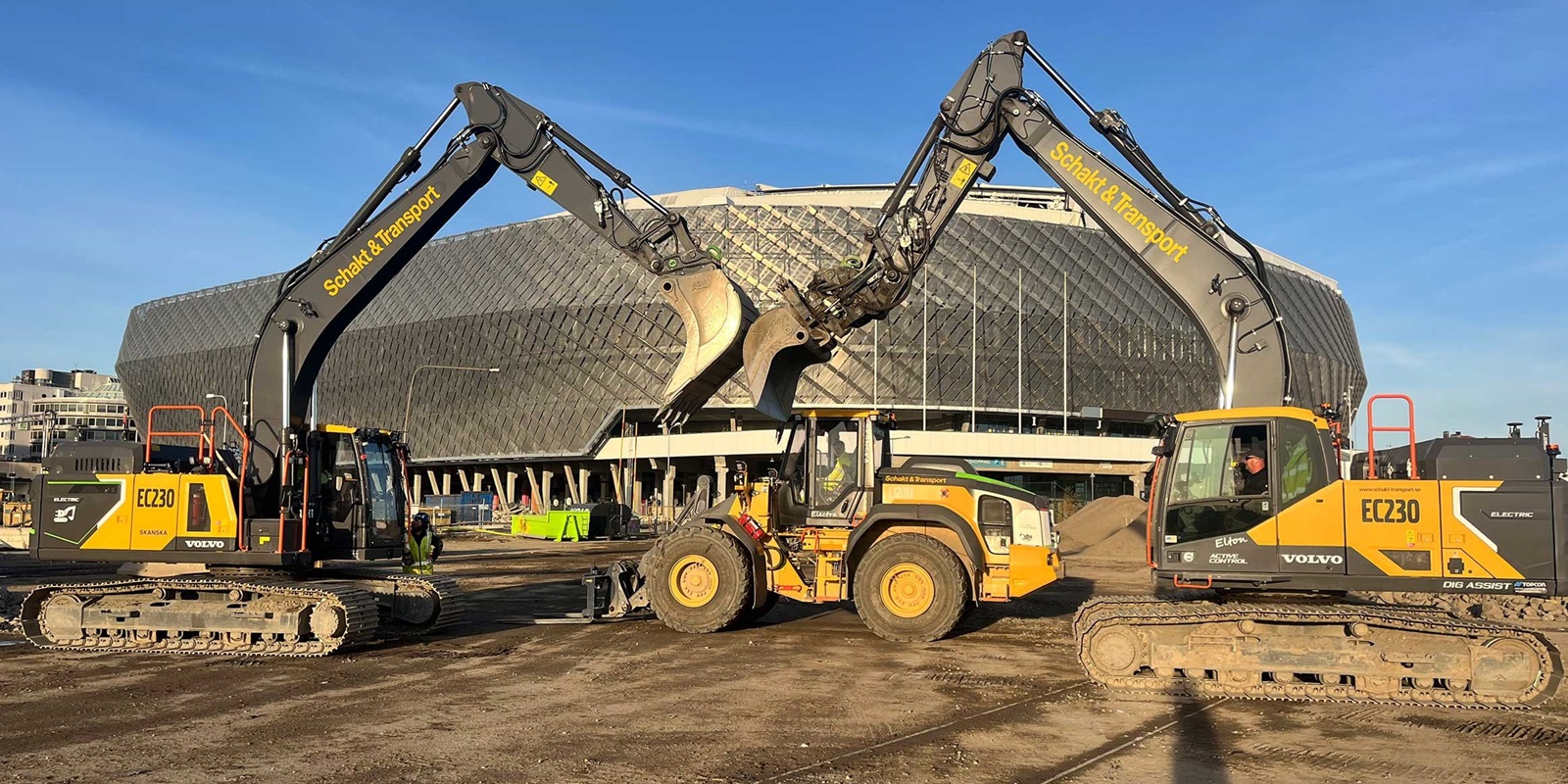
Just two years ago, 10% electric equipment operation seemed like an ambitious target for Sweden’s pioneering, fossil-free construction site. Last week, the site reached a 50% all-electric threshold with the addition of a new, Volvo L120H Electric Conversion wheel loader.
The recently-launched wheel loader joins a pair of 30-ton Volvo EC230 Electric excavators at the site, which is, itself, a redevelopment of the Slakthusområdet (meat-packing district) in central Stockholm. The low-emission job site has capturing international attention for its commitment to sustainability and innovation.
That commitment means that the project has produced a CO₂ “savings” (Volvo’s word) of 2,759 tons as of June 2024 (the equivalent of about 600 ICE cars driving a full year). That feat — the first phase of the multiyear plan — earned the project a “Sustainable Construction Project of the Year” award at the annual Swedish Green Building Awards.
“In the City of Stockholm, we recognize the vital role we must play in accelerating the transition to fossil-free construction sites,” says Anders Österberg, Deputy Mayor of Stockholm and chair of the City Development Committee. “The City of Stockholm has a goal of becoming climate positive by 2030. To reach this goal we need to continue to require the use of electrically powered construction vehicles and fossil-free construction sites in our procurement.”
In the second phase of the project, set to kickoff in mid 2025, the goal is to reduce harmful carbon emissions even further by going under the target of 3.5 tons of CO₂ per SEK 1 million turnover (or about 1 ton of CO₂ for every $250-265,000 in revenue). While that might seem like a lot, it represents a dramatic decrease on the 11 to 29 tons of carbon and diesel emissions typically spent in similar projects.
“When municipalities like Stockholm City prioritize carbon reduction in contract awards, it not only sets an inspiring precedent for other regions, but also drives innovation across the construction industry,” explains Anna Göransdotter, Project Manager at Skanska, the company that runs the heavy equipment at the site. “This proactive approach creates a ripple effect throughout the entire value chain, pushing all stakeholders to explore new possibilities and expand the boundaries of what can be achieved in sustainable construction.”
The battery-powered machines are joined by two electric semi trucks with trailers, including a Volvo electric truck provided by Bellman Group, set to arrive in early 2025. An electrically-powered sorting tool, electric compaction tools, mobile charging infrastructure, and hand-operated electric machines round out the job site’s e-portfolio.
Electrek’s Take
We love learning more about big electric machines and the massive amounts of emissions that they don’t spit out into the places we live, work, and play in. Back in October, we interviewed Sylvie Binder from the New York City Mayor’s Office about a similar effort in NYC backed by the newly launched North American Electric Construction Coalition (NAECC) is committed to decarbonizing the construction industry.
You can check out that interview, above, then let us know what you think of Volvo’s role in decarbonizing the world’s job sites in the comments.
SOURCE | IMAGES: Volvo CE.
